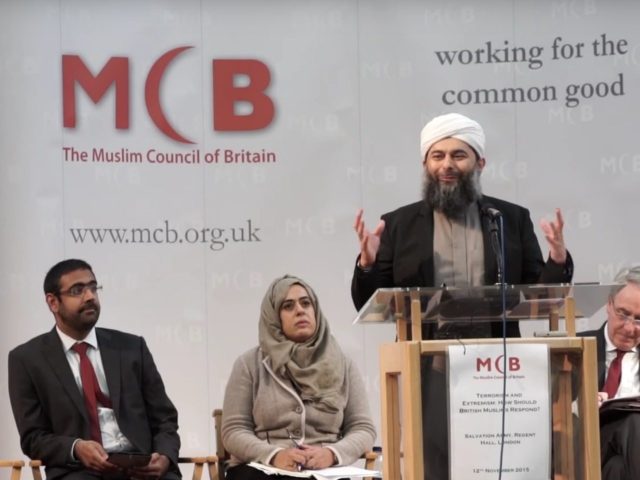The UK’s largest Muslim organisation has denounced the government’s Prevent counter-terrorism programme and is set to launch an “anti-government” rival within months.
The Muslim Council of Britain (MCB) argued Prevent “does not have the support of many Muslim communities” after various groups claimed it “unfairly targets Muslims” and encourages state “spying”.
The MCB’s proposed alternative will be “grass-roots led”, they announced in a statement, and it is thought it will make the case for “non-violence”, rather than challenging extremist and Islamist ideologies.
A source familiar with the plans told The Guardian: “If we can get these voices more heard, they are anti-government and therefore more credible in saying do not turn to violence.”
Mosques will be at the centre of the scheme, rather than law enforcement, and many of the “community leaders” charged with implementing it will be hard-line imams opposed to Western values who are considered extremists by the government, the paper reports.
A source involved in setting it up said a launch was a matter of “when not if” and would probably happen next year. The source also said their primary contention with Islamic State was that it “splits up families”.
Nazir Afzal OBE, a former Chief Crown Prosecutor and Chief Executive of Police and Crime Commissioners in England and Wales, questioned the MCB’s suitability for the role.
“This is the MCB that does little about child abuse, safeguarding in mosques, [female genital mutilation], HBV, gender equity, protecting minorities etc. Good luck,” he wrote on Twitter.
Ismael Lea South, co-founder of The Salam Project, another large British Muslim group, also accused the MCB of hypocrisy.
“We’ve been dealing with issues around honour killings, forced marriages and abuse of imams, and they haven’t dealt with those three things,” he told Talk Radio. “If they didn’t deal with those three things that were around before radicalisation, how can I take what they’re saying about radicalisation seriously?”
Security services estimate that 3,000 people in the UK could pose a terror threat, and more than 850 have travelled to join Islamic State. A survey conducted by ICM Research for Channel 4 this April found that just one in three British Muslims (34 per cent) would contact the police if they believed that somebody close to them had become involved with jihadists.
Prevent was conceived after the July 7 bombings to avert further attacks through early intervention. Those at risk are offered de-radicalisation programmes, which are voluntary until there is an imminent threat of violence. Since 2005, the UK has avoided another major attack, and France and Germany are now planning similar initiatives.
Despite claims it targets Muslims, 50 per cent of referrals in Yorkshire are “far right” related.
This did not stop Miqdaad Versi (pictured above, right), the assistant secretary-general of the MCB, claiming in a Guardian column that “treating all Muslims with suspicion has made Prevent a toxic brand” and “forces the public sector to make Muslims pass subjective and discriminatory counter-extremism litmus tests”.
The MBC has been repeatedly accused of extremism itself. Government officials cut ties with the organisation in 2009, and an official report last year uncovered close ties to the Muslim Brotherhood, a terror group, and lamented how the organisation had “consistently opposed programmes by successive governments to prevent terrorism”.
Until this April, the MCB was officially affiliated to Khatme Nabuwat, an organisation currently being investigated by the Charity Commission for promoting the killing of the progressive, pro-Western Ahmadi Muslim minority.
Despite “temporarily” disaffiliating from the mosque, the MCB continues to class Ahmadis as “apostates” and “infidels” (an accusation punishable by death in much of the Muslim world). The council has also appointed an imam who has supported Khatme Nabuwat and believes apostates should be killed to investigate the hate group.

COMMENTS
Please let us know if you're having issues with commenting.